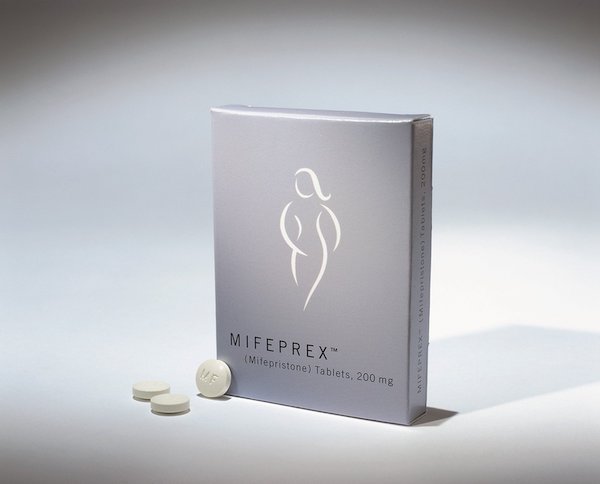
WASHINGTON — Two very different rulings on April 7 by federal judges on the abortion drug mifepristone highlight the country’s disparate views on the subject and signal that the Supreme Court will likely have to weigh in on the drugs’ future availability.
The conflicting rulings, issued about one hour apart by judges in Texas and Washington state, centered on the FDA’s approval of mifepristone, one of two drugs used in more than half of the abortions in this country.
In Texas, U.S. District Judge Matthew Kacsmaryk, a nominee of former President Donald Trump, suspended the FDA approval of the drug, saying that the agency incorrectly determined the drug’s safety and effectiveness and went beyond its regulatory authority when it approved it in 2000.
In direct contrast, U.S. District Judge Thomas Rice in Washington, a former President Barack Obama nominee, said the FDA should not change the availability of mifepristone in the states involved in a lawsuit over the drug’s access.
Kacsmaryk issued a nationwide injunction blocking FDA approval of the drug that goes into effect in seven days and gives the Justice Department time to appeal the ruling.
Rice did not grant a nationwide preliminary injunction to protect the drug’s availability, saying his order only applied to the 17 states and the District of Columbia that had filed a lawsuit seeking increased access to the drug.
The Department of Justice filed a request in a federal appeals court April 10 seeking to block the ruling by the Texas judge. It asked the 5th U.S. Court of Appeals to put Kacsmaryk’s ruling on hold while the case worked through the appeals process.
Danco Laboratories, the New York company that distributes Mifeprex, the brand version of mifepristone, filed a similar request April 10.
The Justice Department has not yet said whether it will file an appeal in the Washington case.
The Washington case, led by the state’s Attorney General, Bob Ferguson, challenged restrictions the FDA has placed on the prescribing and dispensing of mifepristone.
The Texas case was filed by the group Alliance for Hippocratic Medicine on behalf of itself and member groups such as the Catholic Medical Association, the Christian Medical and Dental Associations, and other pro-life groups. The plaintiffs were represented by Alliance Defending Freedom, a religious liberty law firm.
The Texas hearing in mid-March examined the suit’s claims that the FDA “ignored the potential impacts of the hormone-blocking regimen on the developing bodies of adolescent girls” and disregarded evidence that chemical abortions cause more complications than surgical abortions.
The suit also claimed the FDA unlawfully fast-tracked mifepristone’s approval.
Mifepristone, also known as RU-486, is the first of a two-drug regimen used to end a pregnancy in its early stages — through 10 weeks gestation. It is often described as a medication abortion pill.
United States Conference of Catholic Bishops leaders have been vocal in their opposition to this drug since it was first given FDA approval in 2000. They echoed objections in 2016 when the FDA relaxed rules for its use, saying it could be administered with fewer visits to a doctor, and they also objected earlier this year when the FDA announced it was allowing some retail pharmacies to distribute the drug.
Pro-life leaders applauded the ruling by the Texas judge. “This decision shines a light on something that the Biden administration wants to sweep under the rug — that these drugs do not treat or cure disease but kill unborn children and expose their mothers to dangerous side effects. The FDA should be in the business of ensuring safety, not in taking lives,” said Carol Tobias, president of National Right to Life.
Similarly, March for Life President Jeanne Mancini told The Associated Press that the court’s decision “is a major step forward for women and girls whose health and safety have been jeopardized for decades by the FDA’s rushed, flawed and politicized approval of these dangerous drugs.”
Dennis Poust, executive director of the New York State Catholic Conference, said in a statement that the goal of mifepristone is “to end a developing human life in the womb, which is always a tragedy. However, the question before the courts involves the drug’s safety for women and whether the FDA’s approval process in that regard was flawed.”
Poust added: “While we can’t predict what the courts will ultimately rule, the reality is for the pro-life movement to be truly successful in building a culture of life, it will be less about litigation and legislation and more about converting hearts and minds, and giving women in crisis pregnancies the supports they need to encourage them to carry their babies to term.”
If the U.S. Court of Appeals for the 5th Circuit does not allow the FDA to maintain approval of mifepristone, legal experts are saying it is unclear how the two conflicting rulings will play out. One possibility is that there would be increased pressure on the Biden administration to tell the FDA to ignore the decision of the Texas judge.
But the issue will likely come before the Supreme Court and sooner than later in an appeal to its emergency docket. This would be the first abortion case to come to the court since its ruling last year in Dobbs v. Jackson.
